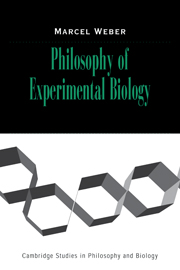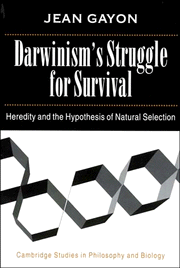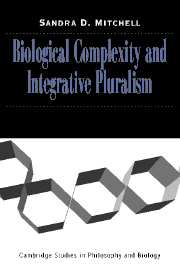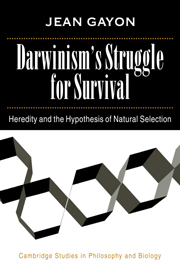Philosophy of Experimental Biology
Exploring central philosophical issues concerning scientific research in modern experimental biology, this book clarifies the strategies, concepts, reasoning, approaches, tools, models and experimental systems deployed by researchers. It also integrates recent developments in historical scholarship, in particular, the New Experimentalism, making this work of interest to philosophers and historians of science as well as to biological researchers.
- Focuses on experimental disciplines in the philosophy of science
- Focuses on the central issues in philosophy of science by using case studies from experimental biology
Reviews & endorsements
"This bookas lucid, comprehensive presentation will enlighten both students and academicians in philosophy, biology, and science history, as well as scientists in other disciplines, while stimulating further discussion and analytical treatments." CHOICE May 2005
"Weber's overall approach is compelling; his book's focus on philosophical significance to be found in details of experimental biology is a welcome addition to the philosophy of biology and to the philosophy of science more generally." - Jonathan Kaplan, Oregon State University
Product details
June 2010Paperback
9780521143448
376 pages
229 × 152 × 23 mm
0.55kg
Available
Table of Contents
- Preface
- Acknowledgements
- 1. Introduction
- 2. Reductionism and the nature of explanations
- 3. Discovery: solving biological problems
- 4. Scientific inference: testing hypotheses
- 5. Experimental systems: a life of their own?
- 6. Model organisms: of flies and elephants
- 7. Reference and conceptual change: out of Mendel's garden?
- 8. Developmental biology and the genetic program: explaining ontogeny
- 9. Scientific realism: in search of the truth
- Notes
- Bibliography
- Index.





